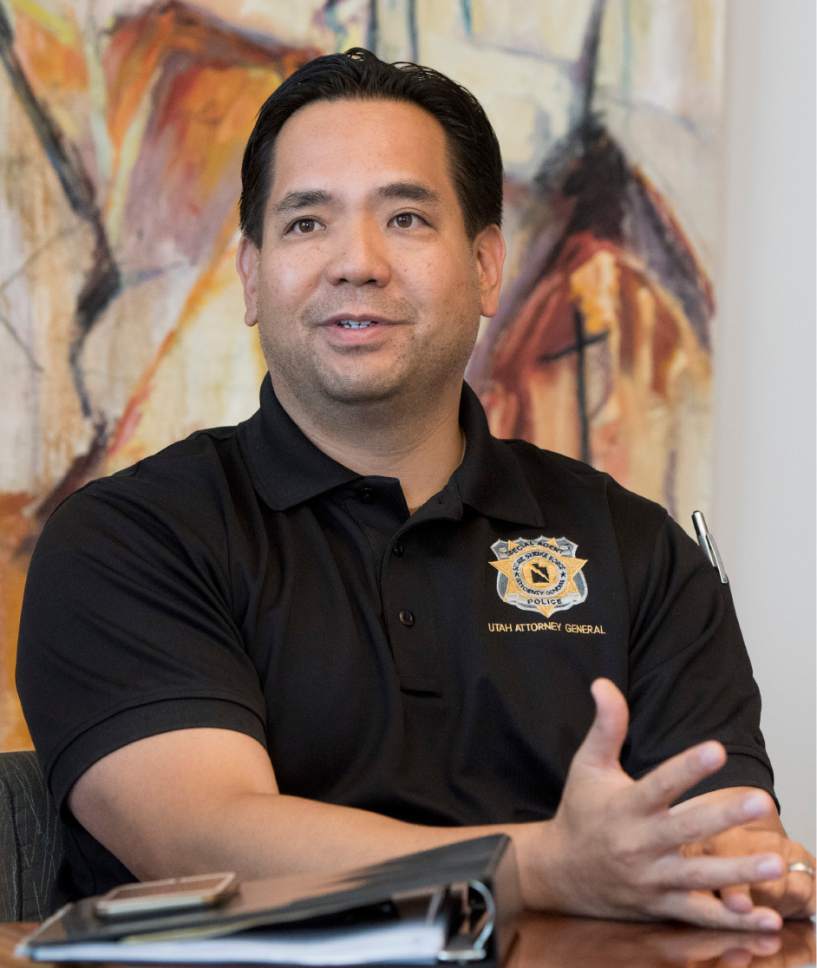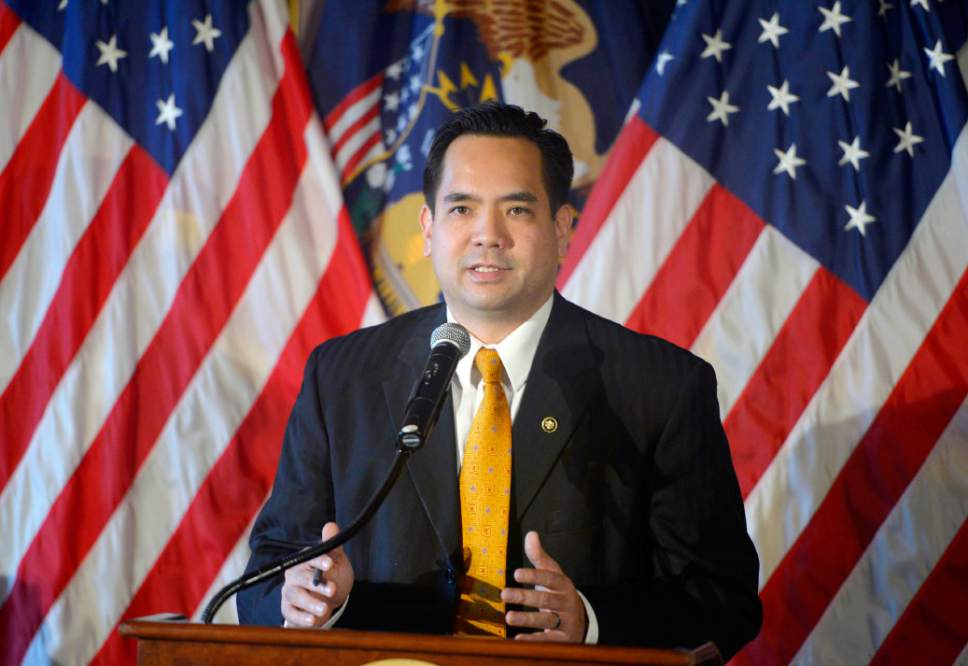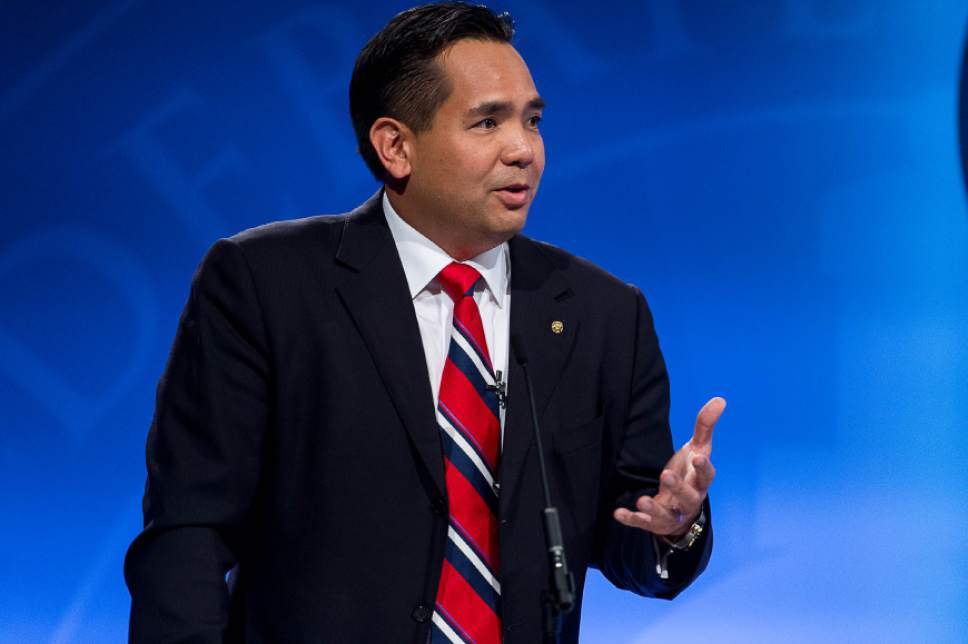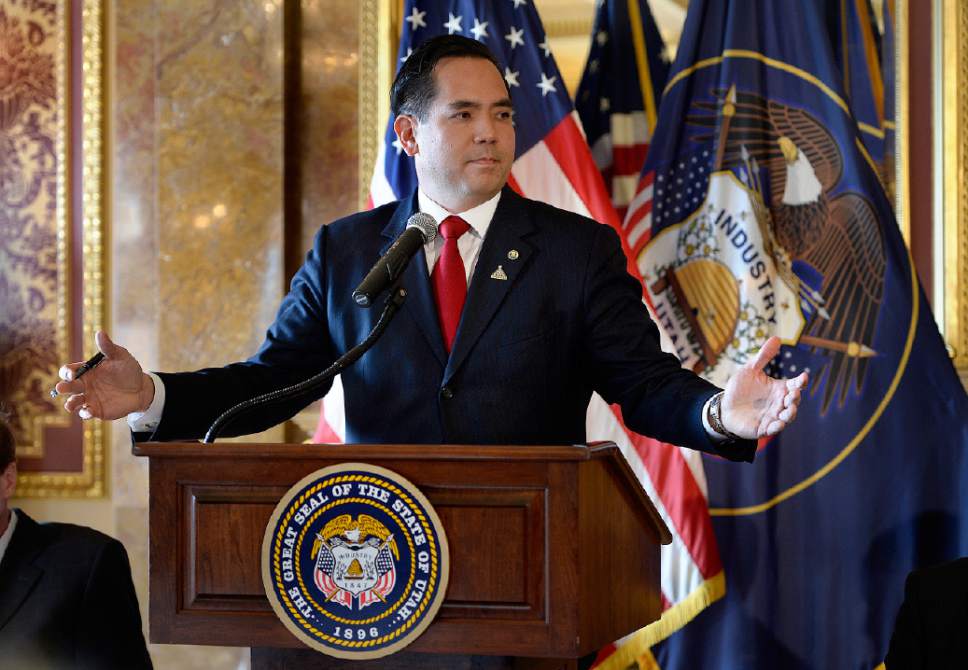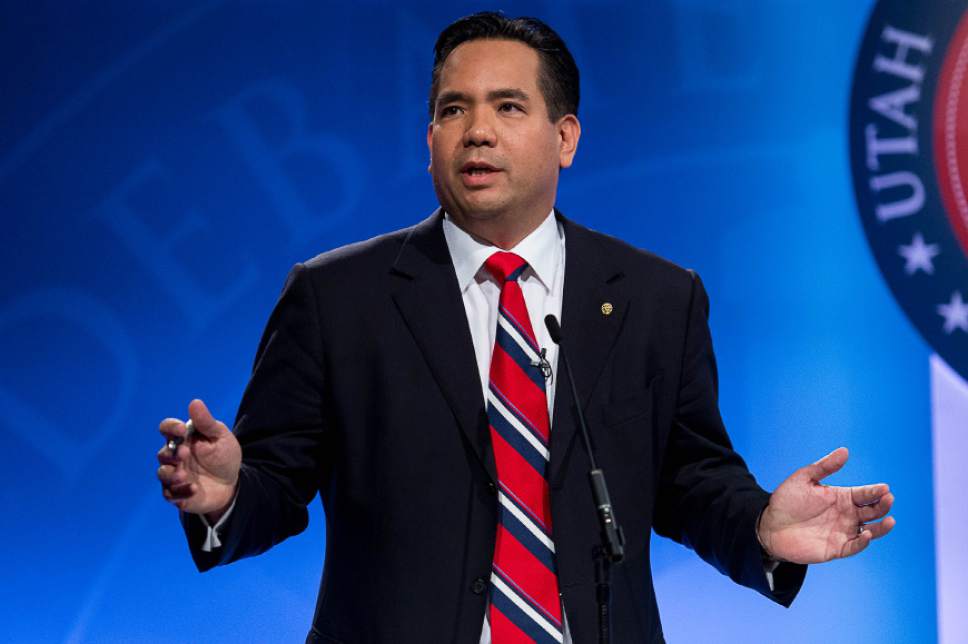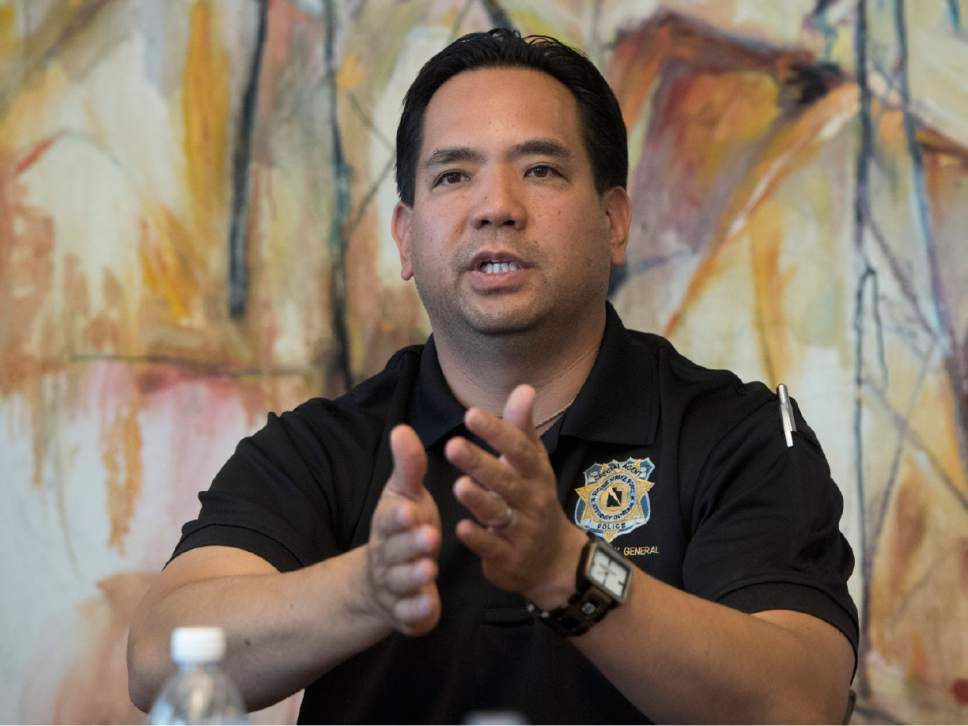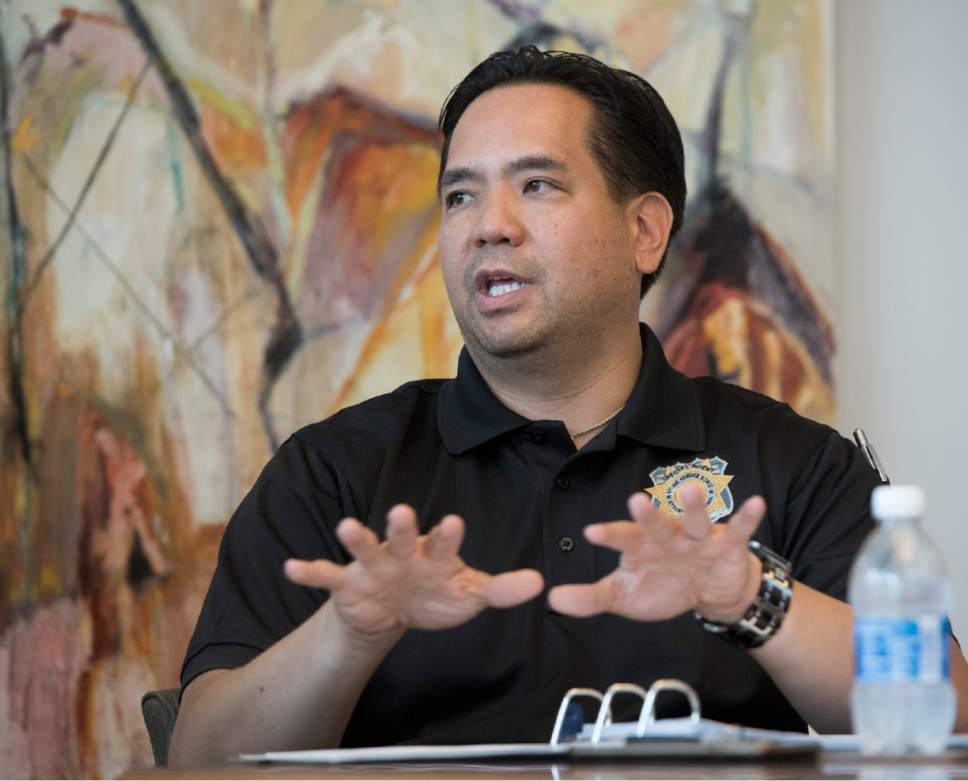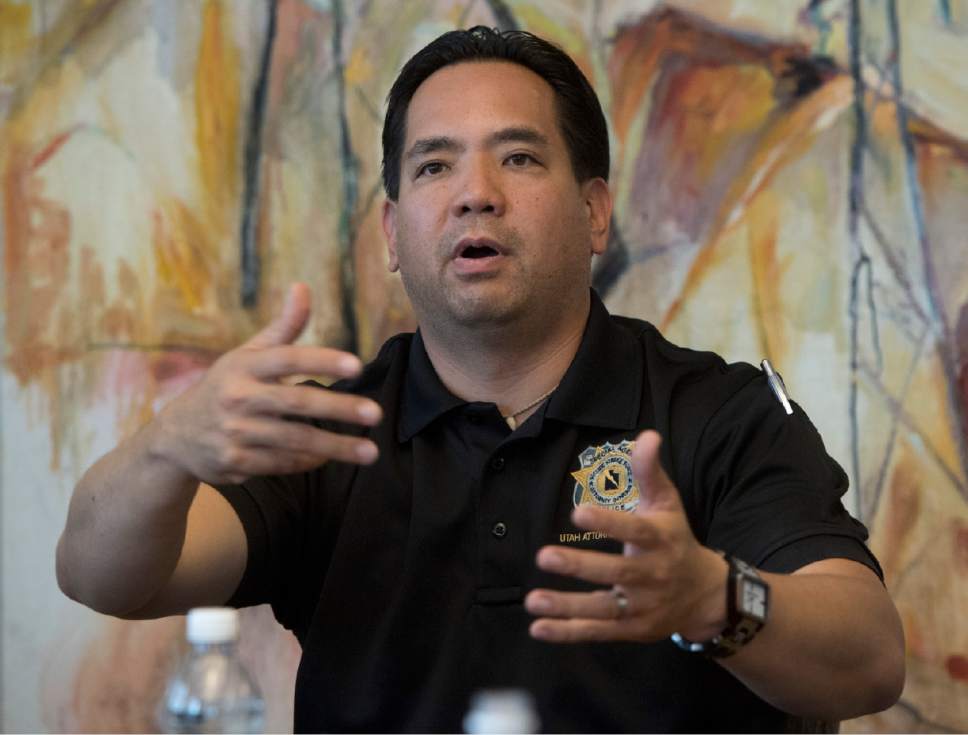This is an archived article that was published on sltrib.com in 2016, and information in the article may be outdated. It is provided only for personal research purposes and may not be reprinted.
Utah Attorney General Sean Reyes said Monday that talk in President-elect Donald Trump's transition team of creating a national registry for Muslims — citing the legal precedent set by the internment of Japanese-Americans during World War II — is offensive and a cause for serious concern.
Reyes, who has mixed-Japanese ancestry, said some of his own friends and family suffered as a result of the internment camps.
"Reference to the Japanese internment as a legal prerogative for any policy is offensive and counter to the highest ideals to which we aspire as a nation," Reyes said in a news release.
He cited President Ronald Reagan's signing of an official congressional apology in 1988 as a "significant acknowledgment of the humiliation, degradation and pain suffered by thousands in the Japanese-American community, including some of my own friends and family. These were loyal American citizens stripped of their rights, freedom and hard-earned property based solely on heritage."
At the same time, Reyes, who worked as a surrogate for the Trump campaign, said the president-elect has rejected any registry system that tracks individuals based on their religion.
Last week, it was widely reported that Trump transition advisers, led by Kansas Secretary of State Kris Kobach, were considering reinstating the suspended National Security Entry-Exit Registration System (NSEERS), a post-9/11 database created during the George W. Bush administration that required individuals from "higher risk" countries to be interviewed, fingerprinted and, in some cases, to register and check in at government offices.
During an interview with Fox News last week, Carl Higbie, who had been spokesman for a pro-Trump political action committee, said he believed it would likely be challenged in court but there was a precedent for the program. "I think it will pass, and we've done it with Iran back a while ago, we did it during World War II with Japanese, which, call it what you will, maybe it was wrong."
Over the weekend, Trump's chief-of-staff-designee, Reince Priebus, said the incoming administration did not envision any religion-based registry, but, "Look, I'm not going to rule anything out."
"We're not going to have a registry based on a religion, but what I think, what we're trying to do is say that there are some people, certainly not all people ... there are some people that are radicalized. And there are some people that have to be prevented from coming into this country," Priebus told NBC's "Meet the Press."
He went on to say that Trump's position is that, if people come from areas that harbor or train terrorists, "We have to temporarily suspend that operation until a better vetting system is put in place."
On Monday, Trump met with Kobach at Trump Tower. As Kobach left the meeting, photographers snapped pictures of the document in his hand. The top two items on the sheet read: "1. Update and reintroduce the NSEERS screening and tracking system (National Security Entry-Exit Registration System) that was in place from 2002-2005. All aliens from high-risk areas are tracked. 2. Add extreme vetting questions for high-risk aliens: question them regarding support for Sharia law, jihad, equality of men and women, the United States Constitution."
Reyes, who was contacted by the Trump administration last week and helped Trump winnow down a list of prospective Supreme Court nominees, said that "Like many Americans, I am gravely concerned about national security and the threat of radical groups that would do us harm.
"The justification for whatever policies we adopt cannot be rooted in the Japanese internment or any of the other darkest mistakes in our nation's history, from slavery and segregation to sterilization and extermination," Reyes said. "These are not the ideals of a free people."
Twitter: @RobertGehrke


